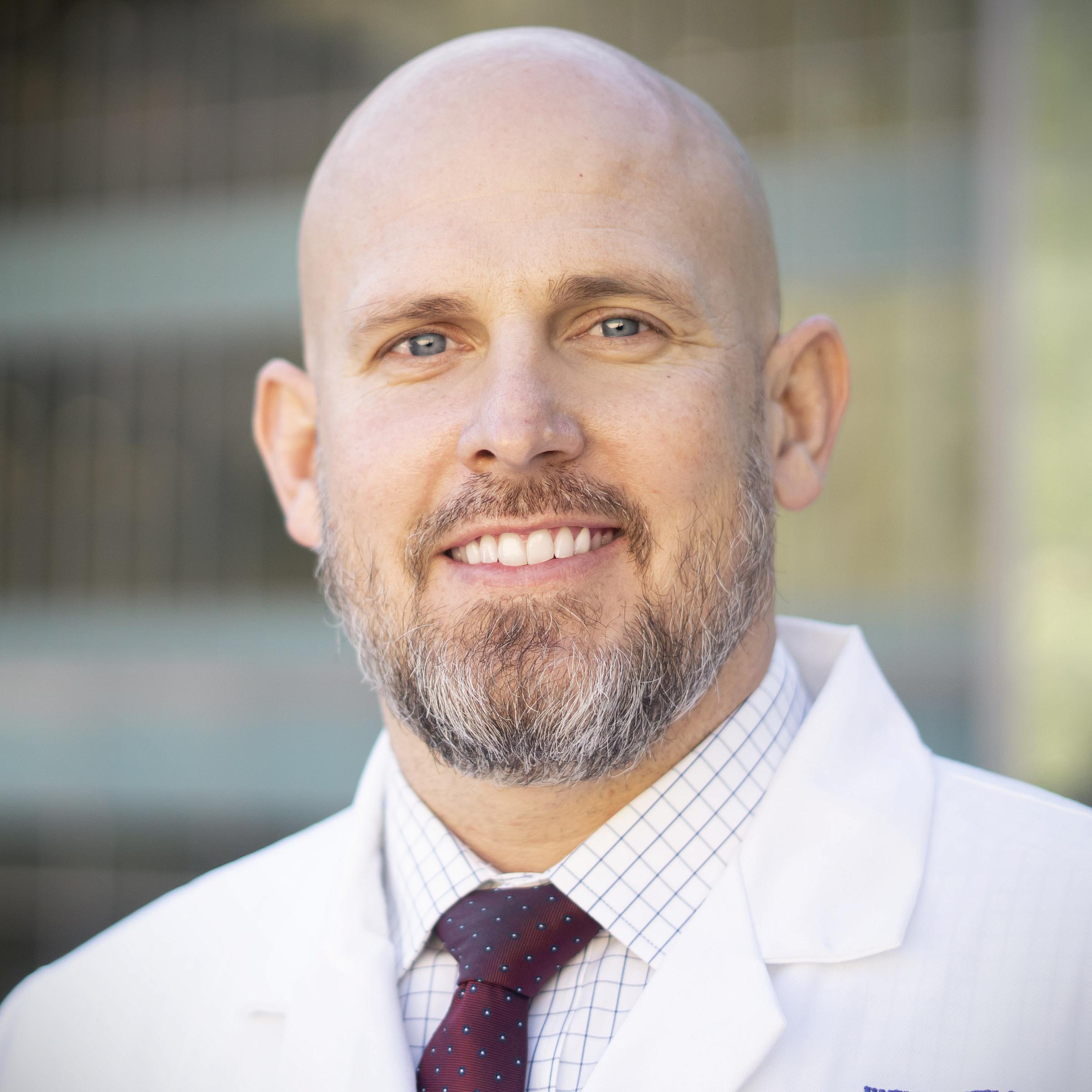
Read Time: 3 minutes

Takeaways:
- Trust and consistency in a doctor-patient relationship can provide comfort and control during uncertain cancer journeys.
- Shared decision-making helps patients align treatment with what matters most in their lives.
Impact: At Huntsman Cancer Institute, Dennis benefited from advanced radiation therapy and hormone treatments delivered with a research-driven, patient-centered approach that extended both his life and quality of living.
In the spring of 2020, as the world shut down under the weight of a pandemic, Dennis Freire sat on a nearly empty beach while on vacation in Hawaii. He had just undergone surgery to remove his cancerous prostate. But post-op results showed the disease had spread. The cancer wasn’t gone. Dennis didn’t know what to do next.
“I was troubled,” Dennis recalls. “I had not once been in front of an oncologist… I wasn’t satisfied. I had to do something.”
That morning on the beach, Dennis made a decision. Instead of flying across the country, he’d drive 250 miles from his hometown in Utah to Huntsman Cancer Institute in Salt Lake City.
“I realized, wait a minute, right in my own backyard is a center of excellence. So, I picked up the phone and called Huntsman Cancer Institute.”
A Relationship Built in Uncertainty
When Dennis first met radiation oncologist Skyler Johnson, MD, it was through a video call. Early pandemic protocols meant no in-person visits. But even through the screen, Dennis knew.
Dr. Johnson suggested Dennis begin treatment in his hometown before starting his treatments at Huntsman Cancer Institute, but Dennis rejected that.
“I’ve already imprinted on you, Dr. Johnson.” Dennis says. “That’s where I’ve decided I’m going to put my trust.”
Dr. Johnson remembered meeting with Dennis and his wife, Kim, in his office for the first time.
“There was this deep sense of anxiety and emotional distress in that space of uncertainty,” Dr. Johnson says. “I recalled personal experiences with my wife, who had been through cancer, and…having to exist in that space before you had a plan. Once we developed a plan and started moving forward, things would start to come together and feel a little bit more in control.”
As he began his treatment under Dr. Johnson’s care, Dennis found the presence and steadiness he needed.
Wednesdays with Dr. Johnson
Dennis began daily radiation and hormone therapy. COVID-19 restrictions barred visitors. But every Wednesday, he had a lifeline: face-to-face time with Dr. Johnson.
“The agitation that you have sometimes when you have questions that are unanswered, I was able to just lay them to rest and wait until Wednesday,” Dennis says.

“We are bound by this painful and traumatic experience. And that creates a bond shaped by emotional intensity and shared decision-making."
Skyler Johnson, MD
That consistency built a relationship deeper than just doctor-patient. “It’s interesting,” Dr. Johnson reflects. “I'm sure Dennis wishes he had never met me, and I wish I’d never had to meet him either. But here we are, bound by this painful and traumatic experience. And that creates a bond shaped by emotional intensity and shared decision-making. It’s a unique bond and I’m grateful for it, in a weird way.”
Shared Goals, Shared Direction
Dennis often described Dr. Johnson as “the captain of the treatment ship.”
But Dr. Johnson had a different view. Rather than feeling like the captain, he felt more like part of the crew that helped steer the ship in the direction Dennis chooses.
“I just guide. I'm not making any of those decisions,” Dr. Johnson says. “I feel fortunate to just be a part of that process.”
That kind of care—collaborative, flexible, human—is what made all the difference for Dennis.


Dennis says that Dr. Johnson equipped him to manage his own expectations and would explain in advance the effects Dennis would experience.
“I found it to be very, very helpful,” Dennis says. “And it increased the trust every time.”
Over the years, they faced multiple setbacks—recurrence, PSA fluctuations, a second round of radiation—each time, they navigated together.
“Our treatments can be toxic,” Dr. Johnson says. “It’s a delicate balancing act—between extending life and maintaining its quality.” That’s why Dr. Johnson stresses that shared decision-making is so vital. It’s not just about what treatments are available; it’s about what matters most to the patient.
Choosing Huntsman Cancer Institute and Choosing Hope
Dennis is clear on why he came.
“I'm not a statistic. To you guys, I'm an actual person. It's made a huge difference for me.”
Dennis describes Dr. Johnson as his advocate.
“I was operating with a bit of fear and uncertainty,” Dennis says. “But everything slows down when Dr. Johnson’s in front of you. He is there, and there are no distractions. That really comforted me.”
Today, over five years after diagnosis, Dennis is still living and living well.
“People don’t know I have stage 4 cancer,” Dennis says. “I'm sitting here at five years, and it's been amazing.”
![“I'm not a statistic. To you guys, I'm an actual person. It's made a huge difference for me.” [field.image-button-alternative-text]](/huntsmancancerinstitute/sites/g/files/zrelqx336/files/media/images/2025/freire-18.jpeg)